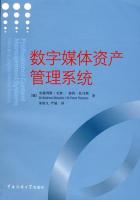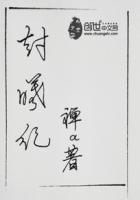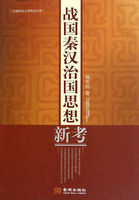Some things are universal, others individual. By the term 'universal' I mean that which is of such a nature as to be predicated of many subjects, by 'individual' that which is not thus predicated. Thus 'man' is a universal, 'Callias' an individual.
Our propositions necessarily sometimes concern a universal subject, sometimes an individual.
If, then, a man states a positive and a negative proposition of universal character with regard to a universal, these two propositions are 'contrary'. By the expression 'a proposition of universal character with regard to a universal', such propositions as 'every man is white', 'no man is white' are meant. When, on the other hand, the positive and negative propositions, though they have regard to a universal, are yet not of universal character, they will not be contrary, albeit the meaning intended is sometimes contrary. As instances of propositions made with regard to a universal, but not of universal character, we may take the 'propositions 'man is white', 'man is not white'. 'Man' is a universal, but the proposition is not made as of universal character; for the word 'every' does not make the subject a universal, but rather gives the proposition a universal character. If, however, both predicate and subject are distributed, the proposition thus constituted is contrary to truth; no affirmation will, under such circumstances, be true. The proposition 'every man is every animal' is an example of this type.
An affirmation is opposed to a denial in the sense which I denote by the term 'contradictory', when, while the subject remains the same, the affirmation is of universal character and the denial is not. The affirmation 'every man is white' is the contradictory of the denial 'not every man is white', or again, the proposition 'no man is white' is the contradictory of the proposition 'some men are white'.
But propositions are opposed as contraries when both the affirmation and the denial are universal, as in the sentences 'every man is white', 'no man is white', 'every man is just', 'no man is just'.
We see that in a pair of this sort both propositions cannot be true, but the contradictories of a pair of contraries can sometimes both be true with reference to the same subject; for instance 'not every man is white' and some men are white' are both true. Of such corresponding positive and negative propositions as refer to universals and have a universal character, one must be true and the other false. This is the case also when the reference is to individuals, as in the propositions 'Socrates is white', 'Socrates is not white'.
When, on the other hand, the reference is to universals, but the propositions are not universal, it is not always the case that one is true and the other false, for it is possible to state truly that man is white and that man is not white and that man is beautiful and that man is not beautiful; for if a man is deformed he is the reverse of beautiful, also if he is progressing towards beauty he is not yet beautiful.
This statement might seem at first sight to carry with it a contradiction, owing to the fact that the proposition 'man is not white' appears to be equivalent to the proposition 'no man is white'. This, however, is not the case, nor are they necessarily at the same time true or false.
It is evident also that the denial corresponding to a single affirmation is itself single; for the denial must deny just that which the affirmation affirms concerning the same subject, and must correspond with the affirmation both in the universal or particular character of the subject and in the distributed or undistributed sense in which it is understood.
For instance, the affirmation 'Socrates is white' has its proper denial in the proposition 'Socrates is not white'. If anything else be negatively predicated of the subject or if anything else be the subject though the predicate remain the same, the denial will not be the denial proper to that affirmation, but on that is distinct.
The denial proper to the affirmation 'every man is white' is 'not every man is white'; that proper to the affirmation 'some men are white' is 'no man is white', while that proper to the affirmation 'man is white' is 'man is not white'.
We have shown further that a single denial is contradictorily opposite to a single affirmation and we have explained which these are; we have also stated that contrary are distinct from contradictory propositions and which the contrary are; also that with regard to a pair of opposite propositions it is not always the case that one is true and the other false. We have pointed out, moreover, what the reason of this is and under what circumstances the truth of the one involves the falsity of the other.















